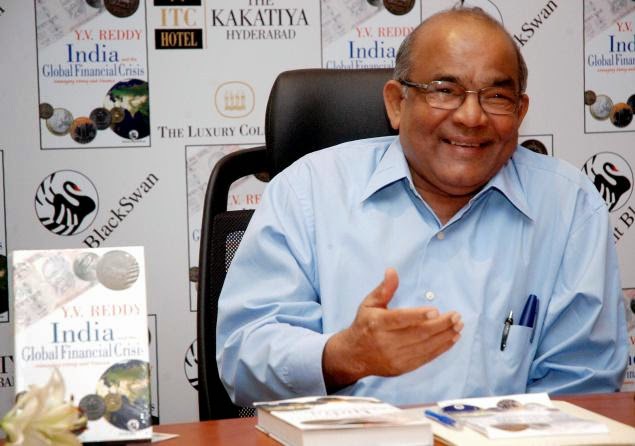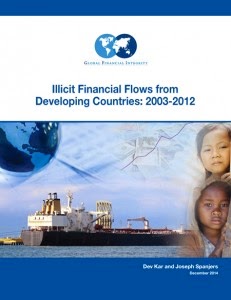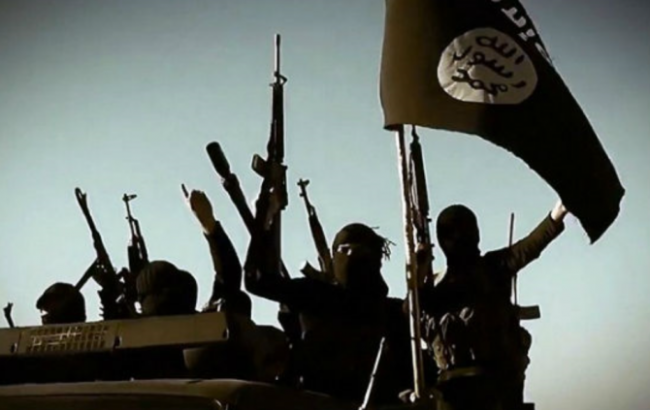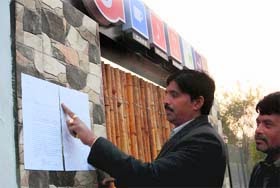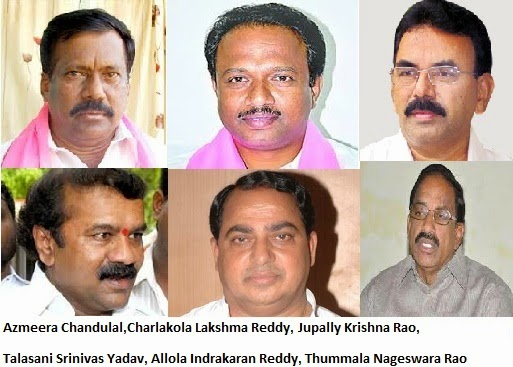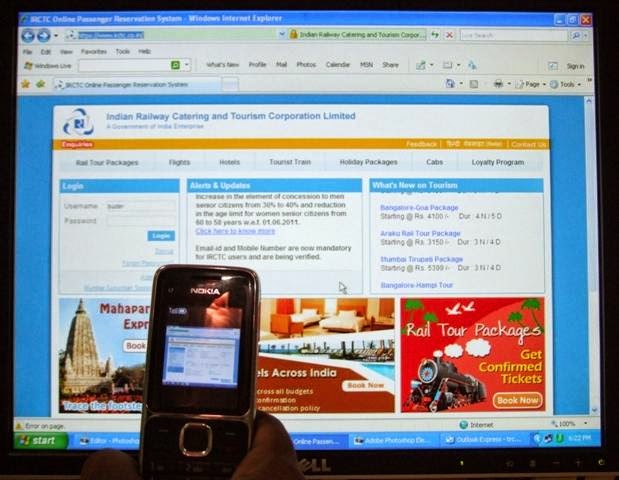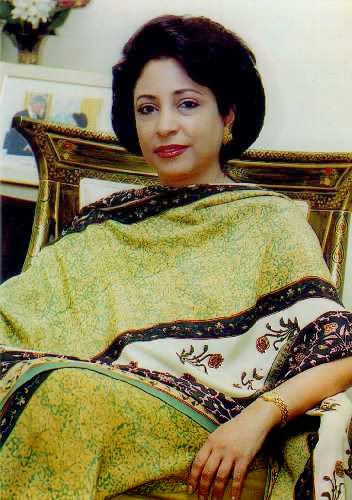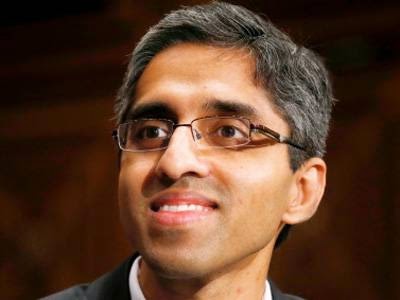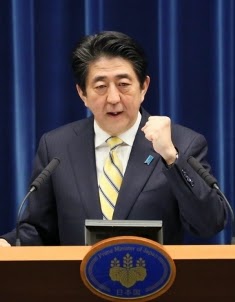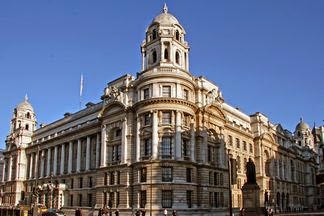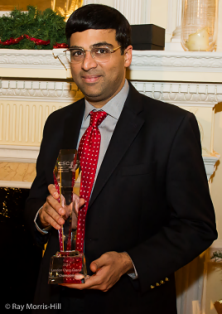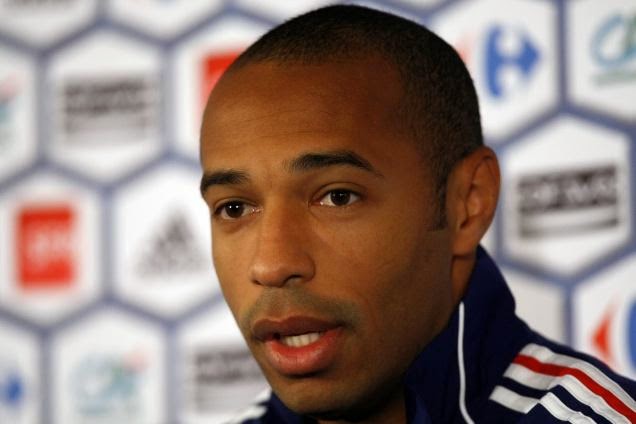Finance /
Business / Economy
Business / Economy
1. 14th Finance Commission submitted its
report to President
report to President
- ·
The 14th Finance Commission headed by former RBI Governor YV Reddy
submitted its report to the President of India on 15 December 2014. - ·
The report was submitted by A N Jha, Secretary of the Finance Commission
to Omita Paul, Secretary to the President of India. - ·
The panel has given its views on the devolution of tax receipts from the
Centre to the States between 1 April 2015 and 31 March 2020. - ·
Report submitted by the Commission will be a key input in the
preparation of the Union Budget 2015-16.
About the 14th Finance Commission
- ·
The 14th Finance Commission was appointed on 2 January 2013 under the
chairmanship of YV Reddy and was asked to submit its report by 31 October 2014.
Further on 31 October 2014, the President of India issued order for extension
of time for the 14th Finance Commission by two months (till 31 December 2014). - ·
President issued an order extending the term of the commission after it
sought an extension of two months for submission of its report to examine
financial projections and carry out consultations with the Andhra Pradesh and
Telangana governments in view of the additional term of reference made to it on
2 June 2014. - ·
The panel was also asked to look into the Goods and Services Tax.
Terms of Reference of 14th Finance Commission
- ·
The resources of the Central Government, for five years commencing on 1
April 2015, on the basis of levels of taxation and non-tax revenues likely to
be reached during 2014-2015 - ·
The demands on the resources of the Central Government, in particular,
on account of the expenditure on civil administration, defence, internal and
border security, debt-servicing and other committed expenditure and liabilities - ·
The resources of the State Governments and the demands on such resources
under different heads, including the impact of debt levels on resource
availability in debt stressed states, for the five years commencing on 1 April
2015, on the basis of levels of taxation and non-tax revenues likely to be
reached during 2014-15 - ·
The objective of not only balancing the receipts and expenditure on
revenue account of all the States and the Union, but also generating surpluses
for capital investment - ·
The taxation efforts of the Central Government and each State Government
and the potential for additional resource mobilisation to improve the tax Gross
Domestic Product ratio in the case of Union and tax-Gross State Domestic
Product ratio in the case of the States - ·
The level of subsidies that is required, having regard to the need for
sustainable and inclusive growth, and equitable sharing of subsidies between
the Central Government and State Governments - ·
The expenditure on the non-salary component of maintenance and upkeep of
capital assets and the non-wage related maintenance expenditure on plan schemes
to be completed by 31st March, 2015 and the norms on the basis of which
specific amounts are recommended for the maintenance of the capital assets and
the manner of monitoring such expenditure - ·
The need for insulating the pricing of public utility services like
drinking water, irrigation, power and public transport from policy fluctuations
through statutory provisions - ·
The need for making the public sector enterprises competitive and market
oriented; listing and disinvestment; and relinquishing of non-priority
enterprises - ·
The need to balance management of ecology, environment and climate change
consistent with sustainable economic development - ·
The impact of the proposed Goods and Services Tax on the finances of
Centre and States and the mechanism for compensation in case of any revenue
loss.
History
- ·
The Finance Commission of India is constituted by the President under
Article 280 of the Constitution of India. The commission is constituted to
define the financial relations between the centre and the state. - ·
As per the Constitution, the commission is appointed every five years
and consists of a chairman and four other members. - ·
1st Finance Commission of India constituted in 1951 was chaired by K.C.
Neogy. Its plan was operational during 1952–57. - ·
13th Finance Commission constituted in 2007 was chaired by Dr. Vijay L.
Kelkar, Former Union Finance Secretary and Adviser to the Finance Minister. Its
plan was operational during 2010–2015.
2. Co-optex launched its e-Commerce Portal
- ·
The Tamil Nadu Handloom Weavers Cooperative Society (Co-optex) on 15
December 2014 launched its online shopping portal offering a range of silk and
cotton sarees. - ·
The portal was launched by Tamil Nadu Handloom Minister S Gokula Indira
in Chennai. By launching its e-commerce portal, Co-optex hopes to tap the
growing business potential. - ·
Co-optex also launched a gift voucher scheme that includes the gift
vouchers of 500 rupees, 1000 rupees and 2000 rupees. - ·
These coupons can be redeemed in any of the outlets in the country
within 90 days. The coupons also allow discounts.
Tamil Nadu Handloom Weavers Cooperative
Society (Co-optex)
Society (Co-optex)
- ·
Established in 1935, Tamil Nadu Handloom Weavers′ Co-operative Society has a rich tradition in Handloom History of about
78 years. - ·
The handloom fabrics produced in Tamil Nadu by the Co-optex are marketed
all over India. Co-optex has a network of 203 showrooms spread all over India.
3. HDFC Bank launched mobile banking facility
Bank Aap Ki Muththi Mein
Bank Aap Ki Muththi Mein
- ·
HDFC Bank on 16 December 2014 launched mobile banking facility Bank Aap
Ki Muththi Mein. An initiative which turns a mobile phone into a bank branch. - ·
The facility will offer over 75 transactions. These are both financial
and non-financial transactions that one needs in their daily life. - ·
It is by far the largest offering of its kind by any bank in India. - ·
Banking facility will work on both a smartphone as well as a basic phone
that supports internet browsing. For phones that do not support internet browsing,
there is SMS-banking and missed-call banking. It is technology agnostic and
will run on all mobile devices’ popular technology platforms. - ·
All that a customer needs to do is send a text to or call a toll free
number to know his account balance, get a mini statement, request a check book
or detailed account statement. - ·
The initiative is a part of the bank’s digital banking offering
christened GoDigital.
4. Global Financial Integrity released the
Global Illicit Financial Flows Report 2014
Global Illicit Financial Flows Report 2014
- ·
The Global Financial Integrity (GFI) on 15 December 2014 released the
Global Illicit Financial Flows Report 2014 titled Illicit Financial Flows from
the Developing World: 2003-2012. - ·
The report finds that the developing world lost 6.6 trillion US dollars
in illicit financial flows from 2003-2012.
Highlights of the report
- ·
Illicit outflows are alarmingly increasing at an average rate of 9.4
percent per year. 991.2 billion US dollars flowed illicitly out of developing
and emerging economies in 2012. The illegal capital outflows originate from
crime, corruption, tax evasion and other illicit activity. - ·
Asia continues to be the region of the developing world with the
greatest volume of illicit financial flows, comprising 40.3 percent. It is
followed by Developing Europe at 21.0 percent, the Western Hemisphere at 19.9 percent,
MENA (the Middle East and North Africa) at 10.8 percent, and Sub-Saharan Africa
at 8.0 percent. - ·
MENA region saw the largest percent increase in illicit outflows from
2003 to 2012 at 24.2 percent per annum. Sub-Saharan Africa followed at 13.2
percent with Developing Europe at 9.8 percent, Asia at 9.5 percent, and the
Western Hemisphere at 3.5 percent. - ·
The top five exporters of illicit capital over the past ten years on
average are: China, Russia, Mexico, India, and Malaysia.
Top 10 Country Rankings in terms of Largest
Average Annual Illicit Outflows (2003-2012)
Average Annual Illicit Outflows (2003-2012)
- 1.
China - 2.
Russian Federation - 3.
Mexico - 4.
India - 5.
Malaysia - 6.
Saudi Arabia - 7.
Brazil - 8.
Indonesia - 9.
Thailand - 10.
Nigeria
India
5. Union Government banned terror group ISIS
in India
in India
- ·
The Union Government on 16 December 2014 banned Islamic State of Iraq
and Syria (ISIS) under Unlawful Activities (Prevention) Act. The action came
few days after an engineer was detained for running a popular Twitter account
that praised the militant group’s military campaign. - ·
The aim of the ban is to limit the activities of the West Asia group
which has carved out swathes of territory in Iraq and Syria. - ·
The detained techie Mehdi Masoor Biswas was working for a food company
from the southern tech hub of Bengaluru. He was running the pro-Islamic State
Twitter handle @ShamiWitness that had 17800 followers. He was picked up by
police on 13 December 2014 - ·
Earlier, India didn’t issue a ban on the group due to lack of its
activity in India. Also because India considered that the fate of 39 Indian
construction workers who are missing in Iraq lies in the hands of the group. It
is believed that these Indians are held by ISIS.
6. Lok Sabha passed Public Premises (Eviction
of Unauthorized Occupants) Amendment Bill 2014
of Unauthorized Occupants) Amendment Bill 2014
- ·
Lok Sabha on 15 December 2014 passed the Public Premises (Eviction of
Unauthorized Occupants) Amendment Bill, 2014. - ·
The Bill seeks to amend the Public Premises (Eviction of Unauthorised
Occupants) Act, 1971.
Provisions of the Public Premises (Eviction
of Unauthorized Occupants) Amendment Bill, 2014
of Unauthorized Occupants) Amendment Bill, 2014
- ·
The Bill proposes to make suitable amendments in Sections 2, 4, 5, 7 and
9 of the 1971 Act. - ·
The bill redefines public premises to include companies in which at
least 51 percent of the paid-up share capital is held by Central and state
governments. - ·
Out of 20 suggestions given by the Supreme Court in its 2013 judgment
about unauthorized occupancy, 18 have been incorporated in the Bill. - ·
The bill seeks to bring the properties of Delhi Metro Rail Corporation
and other Metro Rails which may come up in future and also the properties of
New Delhi Municipal Council within the ambit of the 1971 Act.
Public Premises (Eviction of Unauthorised
Occupants) Act, 1971
Occupants) Act, 1971
- ·
The Public Premises (Eviction of Unauthorised Occupants) Act, 1971 was
enacted to provide for speedy machinery for the eviction of unauthorised
occupants from public premises. Earlier, this Act has been amended thrice in
the years 1980, 1984 and 1994. - ·
The fourth amendment bill, Public Premises (Eviction of Unauthorised
Occupants) Amendment Bill, 2011 was introduced in the Lok Sabha on 23 November
2011. The Bill was referred to the Parliamentary Standing Committee (PSC) on
Urban Development. - ·
The Committee in its Report had made some observations and
recommendations to the Bill. Moreover, the Supreme Court in its judgment in
July 2013 had given 20 suggestions to speed up the vacation of unauthorised
occupants from the Public Premises. - ·
However, with the dissolution of 15th Lok Sabha, the Public Premises
(Eviction of Unauthorised Occupants) Amendment Bill, 2011 lapsed.
7. Six new ministers inducted in Telangana
State Cabinet
State Cabinet
- ·
Six new ministers were on 16 December 2014 inducted into Telangana State
cabinet by Chief Minister K Chandrasekhara Rao. The ministers took the oath of
office and secrecy at the Raj Bhavan in Hyderabad. - ·
Before the induction of the new batch of ministers, there were 12
cabinet ministers in Telangana cabinet. Now, the total strength of the cabinet
is 18, which is also the maximum permissible cabinet size in Telangana. - ·
Six new ministers Moreover, the Chief Minister also revived the posts of
Parliamentary Secretaries to accommodate a number of aspirants.
List of the ministers
- 1.
Thummala Nageswara Rao (Former MLA of Khammam) - 2.
Charlakola Lakshma Reddy (MLA from Jadcherala constituency, Mahabubnagar
district) - 3.
Azmeera Chandulal (MLA from Mulugu, Warangal district)) - 4.
Jupally Krishna Rao (MLA from Kollapur,Mahabubnagar district) - 5.
Allola Indrakaran Reddy (MLA from Nirmal, Adilabad district) - 6.
Talasani Srinivas Yadav (MLA representing Sanathnagar, Rangareddy)
The Constitution (Ninety-First Amendment)
Act, 2003
Act, 2003
- ü
As per the Article 164 (1A) of the Indian Constitution, the total number
of Ministers including the Chief Minister in the State Council of Ministers
shall not exceed fifteen percent of the total number of Members of the
Legislative Assembly (MLA). - ü
The Article also provides that the number of Ministers including Chief
Minister in a State shall not be less than twelve.
8. ‘Election 2014’ tops Google India’s trending
list
list
- ·
With digital media emerging as new and one of the most powerful election
battlegrounds in the Lok Sabha 2014 elections, the term ‘Election 2014’ topped
Google India’s trending list for the year. - ·
According to the search giant’s annual ‘Year in Search’ (YIS), other top
trends on the website were FIFA 2014, iPhone 6, GATE 2015 and Narendra Modi. - ·
Bollywood actor Sunny Leone continued to be the most searched
personality, followed by Prime Minister Narendra Modi and actors such as Salman
Khan, Katrina Kaif and Deepika Padukone. Google said a politician had gained
more search popularity than entertainment celebrities for the first time. - ·
“The findings of Google’s Year in Search are a clear testimony to
India’s growing interest in issues of national importance. The 2014 Lok Sabha
elections pointed to the power of digital media and also to the unprecedented
demand for information,” Rajan Anandan, Managing Director, Google India, said. - ·
In terms of top searches across categories, IRCTC topped the list,
followed by Flipkart, SBI Online, Snapdeal and PNR status. - ·
Google’s Year in Search also reflected the year’s top news moments that
captured India’s attention. In addition to Mr. Modi’s historic win, the death
of Sunanda Pushkar and the mystery of Malaysia Airlines 370 generated
curiosity, Google said.
International
9. Maleeha Lodhi appointed as Pakistan
Ambassador to the United Nations
Ambassador to the United Nations
- ·
Veteran journalist-turned-diplomat Maleeha Lodhi was on 15 December 2014
appointed as 16th Pakistan Ambassador to the United Nations (UN). Lodhi
succeeded incumbent Ambassador Masood Khan. - ·
Lodhi will join the office as Pakistan’s representative to the UN in
February 2015.
Maleeha Lodhi
- ·
Maleeha started her career in journalism and is the first woman in South
Asia to become the editor of a national daily The News International. She
entered diplomacy after a career in journalism. - ·
Lodhi taught Politics and Political Sociology at the London School of
Economics from 1980 to 1985. - ·
Lodhi has twice served as Pakistan’s Ambassador to the United States in
1993-96 and 1999-2002. - ·
She had been the Pakistan High Commissioner to the United Kingdom
between 2003 and 2008.
10. Vivek Hallegere Murthy appointed as 19th
Surgeon General of America
Surgeon General of America
- ·
Indian-American physician Vivek Hallegere Murthy was on 15 December 2014
appointed as the 19th Surgeon General of America. - ·
His appointment was confirmed by the United States (US) Senate as he won
51 votes to 43 votes. - ·
As surgeon general, Murthy will serve as the US top spokesperson on
public health issues. He will be the youngest and the first Indian-American to
hold the post. - ·
The post of Surgeon General of America was vacant since 2013. Boris
Lushniak was the acting Surgeon General of America since July 2013. - ·
US President Barack Obama in November 2013 had nominated Vivek Hallegere
Murthy to this top administration post on public health issues. - ·
Murthy’s nomination received broad support from over 100 medical and
public health organizations in the US.
Vivek Hallegere Murthy
- ·
Murthy is a Hospitalist Attending Physician and Instructor in Medicine
at Brigham and Women’s Hospital at Harvard Medical School since 2006. - ·
He co-founded VISIONS Worldwide in 1995, a non-profit organisation
focused on HIV/AIDS education in India and the United States. - ·
Murthy has been the Co-Founder and Chairman of the Board of TrialNetworks,
a cloud-based Clinical Trial Optimization System since 2007. - ·
He is also the co-founder and president of Doctors for America
organization since 2009.
11. ICC upgraded the status of Palestine to
Observer State
Observer State
- ·
International Criminal Court (ICC) on 8 December 2014 upgraded the
status of Palestine to Observer State. The acceptance of Palestine as an
Observer State came in a procedural move at the opening session of the Assembly
of States Parties to the Rome Statute in The Hague, the Netherlands. - ·
The Rome Statute that came into force on 1 July 2002 helped establish
International Criminal Court in The Hague in the Netherlands. - ·
The step is seen as moving closer toward joining the world’s permanent
war crimes tribunal and it will help Palestine to press charges against Israel
for alleged war crimes. - ·
UN General Assembly voted overwhelmingly in November 2012 to upgrade the
Palestinians’ status from a UN observer to a non-voting member state, which
allows it to be an observer under the rules of the Assembly of States Parties
and to ratify the Rome statute and to accept its jurisdiction. - ·
Previously, the Palestinians could attend as an entity without those
rights.
12. Japanese Prime Minister Shinzo re-elected
for another four year term
for another four year term
- ·
Japanese Prime Minister Shinzo Abe on 14 December 2014 was re-elected
for another four-year term. He was re-elected after Japan’s ruling coalition
(Liberal Democratic Party and Komeito) won a two thirds majority in the Snap
elections held for the Lower House (House of Representatives) of the Bicameral
legislature, the National Diet. - ·
Snap elections were called by Abe to secure support for his Abenomics,
which is a blend of aggressive monetary easing, public spending and economic
reforms. - ·
The elections saw the voter turnout at 52.7 percent, which was a
post-World War II record low. The turn-out was also down nearly 7 percentage
points from the previous lower house election in 2012.
13. Hinduja Group acquired iconic Old War
Office Building of Winston Churchill
Office Building of Winston Churchill
- ·
Hinduja Brothers, Srichand and Gopichand Hinduja, in the second week of
December 2014 acquired the iconic old war office building of Winston Churchill.
The building will be restored and redeveloped into a five-star hotel and
residential apartments. - ·
The Hinduja acquired the 580000 square-feet landmark at 57 Whitehall in
Central London in partnership with a Spanish industrial company Obrascon Huarte
Lain Desarrollos (OHLD). The building was sold on a 250-year lease arrangement
for an undisclosed amount. - ·
The decision to sell the building was taken by the Ministry of Defence
in order to invest in defence priorities.
It was put up for sale after being declared surplus to MoD requirements
in August 2013. - ·
The building has more than 1000 rooms and two-and-a-half miles of
corridors and had escaped largely unscathed even after being bombed eight times
during World War II. The building stands diagonally opposite to Prime Minister
David Cameron’s official residence 10 Downing Street.
Sports
14. Viswanathan Anand won London Classic
Chess title
Chess title
- ·
Five-time World Chess Champion Viswanathan Anand of India on 15 December
2014 won his maiden London Classic Chess title. To win the title, he defeated
British Grandmaster Michael Adams in the fifth and final round. - ·
Viswanathan Anand (India, 7) beat Michael Adams (England, 4) - ·
The victory at London Classic confirmed Anand’s presence in elite chess
for some time as earlier in November 2014 he had lost to Magnus Carlsen of
Norway in the world championship match at Sochi. The quick recovery of Anand in
London suggests that there is more to expect from the Indian on the chess
board.
15. French star Thierry Henry retires
- ·
Former Arsenal and France striker Thierry Henry announced his retirement
on Tuesday, ending a 20-year career in which he earned a place in the pantheon
of modern greats. - ·
Henry, a member of the France teams that won the 1998 World Cup and 2000
European Championship, was linked to a potential coaching role with the Gunners
after ending his career with the New York Red Bulls, but announced he will
become a TV analyst. - ·
After a disappointing stint at Juventus, Henry bounced back under the
helm of Arsenal coach Arsene Wenger. The World Cup winner arrived in London in
August 1999, after Wenger’s side was denied back-to-back titles by one point by
Manchester United. - ·
After failing to score in his first eight games, Henry netted 26 goals
that season and went on to score 226 times in 369 appearances for Arsenal from
1999 to 2007, winning seven trophies.



